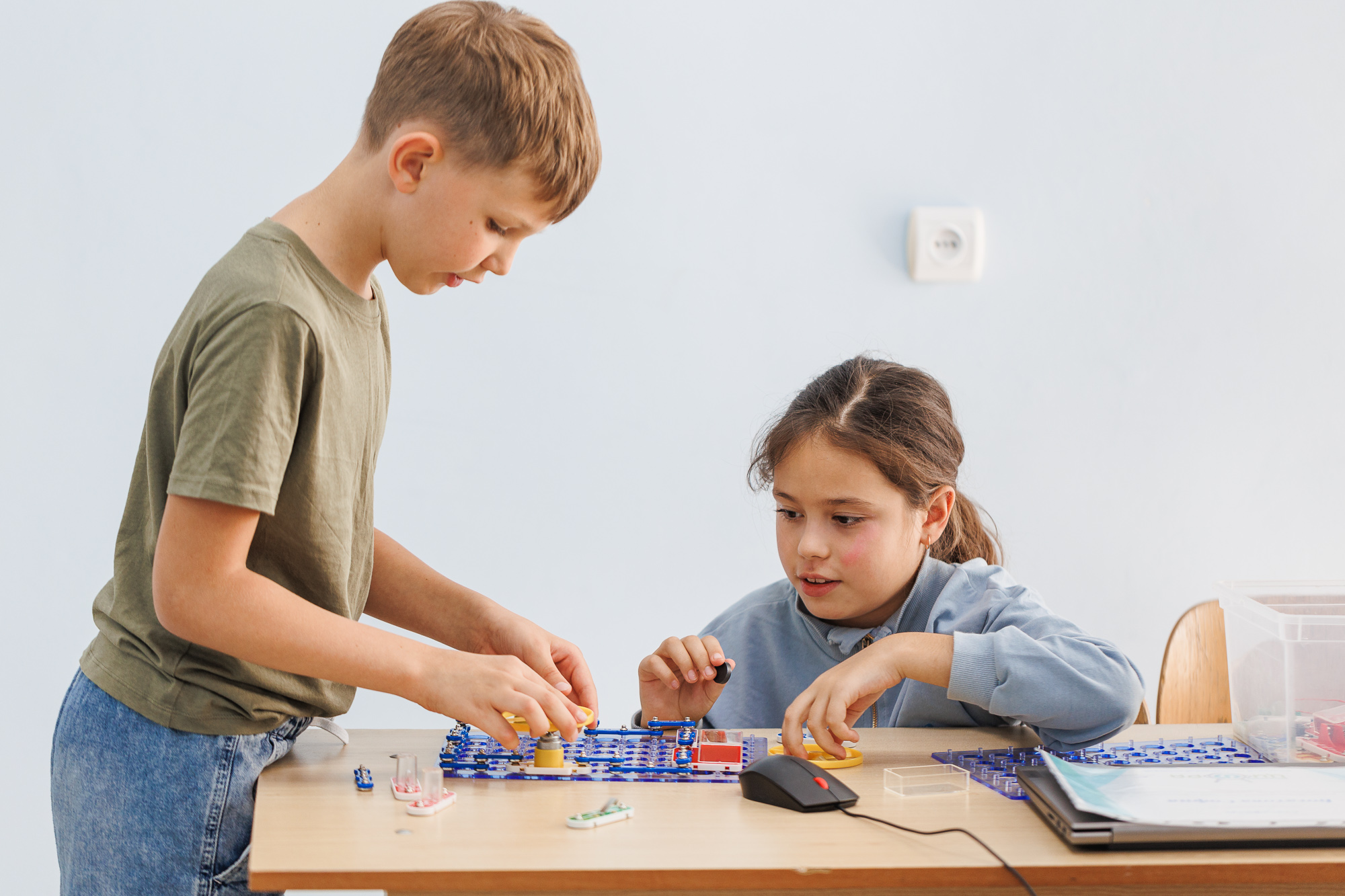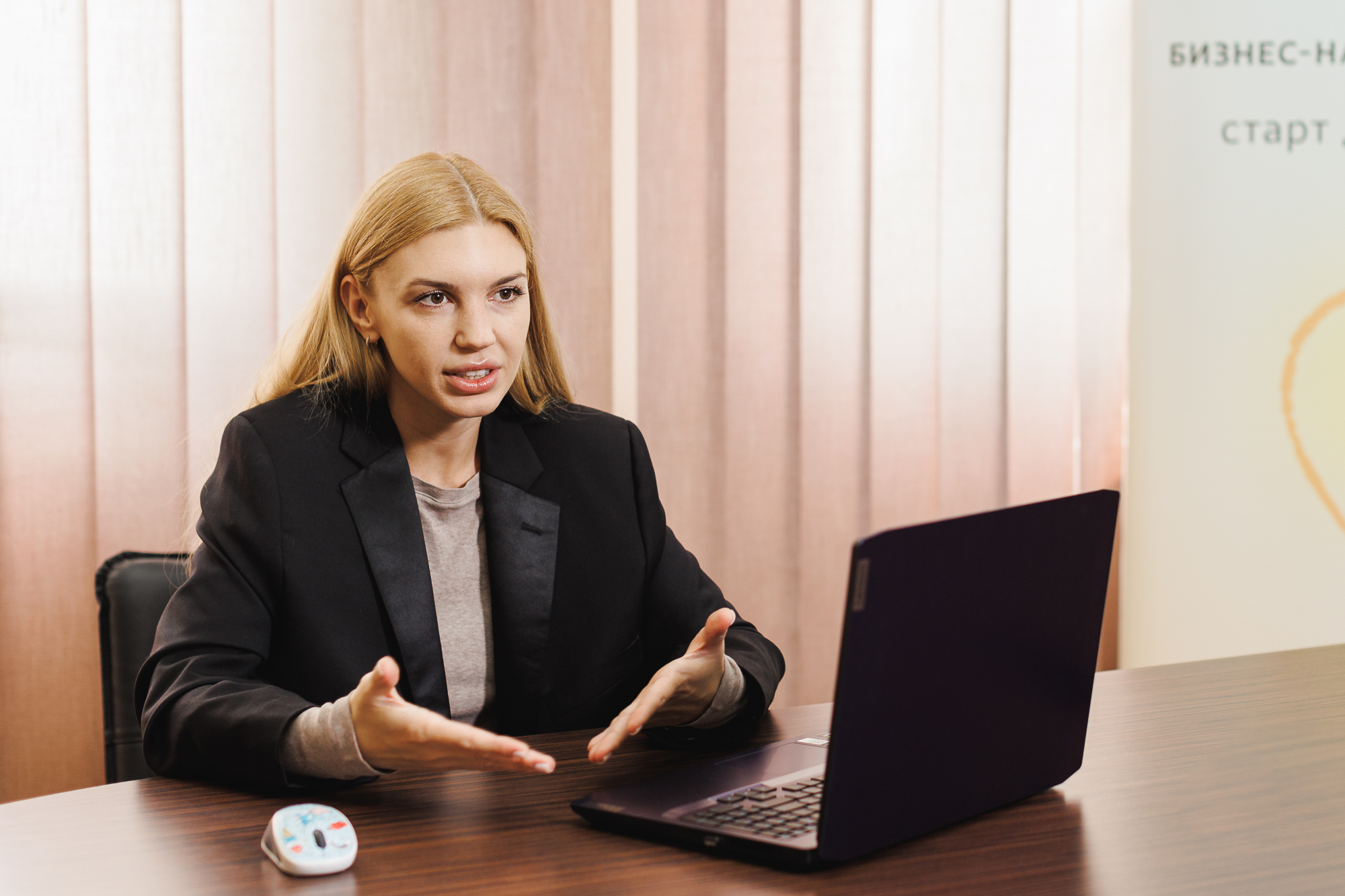Two women entrepreneurs from the left bank of the Nistru river launched businesses in digital and robotics with EU and UNDP support
The pathway from employee to entrepreneur
November 9, 2022

In Tiraspol and Rîbnița, businesses focusing on enhancing digital skills of children and adults are being developed with the support of the European Union's Confidence Building Measures Programme, implemented by UNDP Moldova. Video content creation and providing digital services, so as robotics courses are just two of the business ideas that were funded by the programme in 2021.
Following a ten-year experience in television production, Iana Valeeva decided to change her career pathway and to start her own business. This is how she found out about the call for proposals launched as part of the European Union’s Confidence Building Measures Programme, implemented by UNDP Moldova. Out of the 76 applications submitted, Iana's project idea was selected as one of the winners. So, Iana Valeeva became an entrepreneur by opening a studio specialising in post-production – one of the few in Tiraspol.
“How do I feel about being the team leader? It's very demanding, it requires a lot of commitment and responsibility, with many sleepless nights. Most likely I am not a good role model as a manager, because I am rather friendly with all my colleagues. Both women and men work in this field. It's a field of creativity where everybody can deliver great results. It takes talent, with many people involved in the production process: designers, technicians, editors, project coordinators, animators, etc.,” says Iana Valeeva.

Iana Valeeva
The team formed was provided with the necessary equipment, meaning high-performance computers, so that the video content ideas could be realised. However, after 24 February, things took a different turn and the number of new contracts fell dramatically. To keep maintenance costs down, the production team had to work from home.
Crises or stress tests
“The pandemic and everything that happened after 24 February pushed us out of our comfort zone. At first, we were in shock. We used to have outsourcing collaborations with professionals from Ukraine, but since February it has become very complicated to continue using their services, because many of them were turning us down on the grounds of having fled Ukraine or simply because of no longer having the right conditions for dubbing, since they were living in bunkers. After a while, I pulled myself together, so was my team and we started looking for other option. We created a website – now we know how a sales funnel works – we learned how to not rely only on the customers you're used to, but to look for new ones. You should stay alert, otherwise you simply lose your business,” Iana explains.
In Tiraspol, there were very few professionals in the field when Iana launched her project. She decided not to head-hunt the employees from local TV stations or TV studios, but rather to give young job seekers a chance.
“I really wanted to put together an enthusiastic team so that we could grow together professionally. So, I invited young people who studied video editing, graphics and animation to join our team. It was difficult at first, but also very exciting. I am now very proud of my team and we hope to expand in the near future.”
The business Iana is in has the fiercest competition.
“Besides being lucky, we have to be competitive enough, but I really want to enter the international market,” concludes Iana.
Entrepreneurship in the world of robotics
Two hours away from Tiraspol, in Rîbnița, Irina Terliuga, a lecturer at the Faculty of Applied Computer Science in Economics, has launched her courses in robotics and 3D modelling. This is thanks to a €10,000 grant offered by the European Union.
“I teach and work in the field of information technology and I notice how some people find it harder to feel comfortable with it, that they are not at ease with a gadget. So, it's very important to teach our children how to use various technologies, because they are no longer about the future, but about the present,” says Irina.
During robotics classes, the little ones learn why it's not a good idea to stick your fingers in a socket, how an electricity circuit works. Using different wiring combinations, students can build smart plugs or smart lighting in class and they get a much better understanding of how things work by doing them.
“Our goal is to get them to discover all these things for themselves through play, because that's how they get their creativity going," Irina explains.
Since their launch in Rîbnița, in the first year of activity, about 35 children aged 8-12 have attended the robotics courses. Irina is already putting together a web design course and plans to launch a mobile app development course for teenagers.
Irina is proud that she managed to launch a business in the field of education and does not see herself as a classic entrepreneur, who is busy counting the profits. Rather, she believes that education is an investment in the future and that every school needs to adapt to the times we live in.
“I have an analytical mind and I really like technology. I’m at home in the world of technology and I don’t feel reluctant when it comes to working with a new device – I'm rather curious to find out how it works. There have been situations where people were unable to understand why a woman would launch robotics courses, but I'm comfortable where I am and I love what I do.”Irina Terliuga, lecturer at the Faculty of Applied Computer Science in Economics and entrepreneur
In 2021, the European Union’s Confidence Building Measures Programme, implemented by UNDP, awarded 26 grants (17 women grantees and 9 men grantees) to entrepreneurs from left bank of the Nistru river through the grants competition “Mentoring in business – Start for the youth”. The programme contributes to building trust between people on both sides of the Nistru River by involving them in joint development projects.

 Locations
Locations




